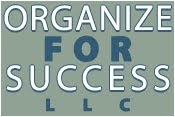Research shows the average US office worker is interrupted 11 times each hour of the workday, and, then, it takes 3 to 8 minutes to refocus, although it can take up to 25 minutes to really refocus when working in deep thought. My rough math tells me that doesn't leave much time for getting things done, let alone accomplishing your big, hairy, audacious goals. Since time is a very limited resource, it's vital to note how distractions are robbing you of valuable minutes, hours and days; reducing distractions is a valuable skill to learn for boosting your productivity.
Here are 10 easy ways to get started limiting distractions:
- Wear noise-reducing headphones. - Particularly when you focus on strategic thinking or creative production, wearing headphones can block out what's happening around you, even if they aren't playing any sort of music at all. When you work in a shared workspace, wearing headphones has the added bonus of communicating to your co-workers that you are deep in thought and to please not interrupt your efforts.
- Turn off the pings, ding and pop-ups of tech-related notifications. - Set your smartphone to silent and remove the vibrate that goes with the silent mode. Stop any pop-up notifications telling you when you get a new comment on social media. Deactivate previews of newly received email messages. Instead, schedule time for handling calls, social media and processing email. Then, for anyone requiring immediate responses, like key account clients or your direct supervisor, make them VIPs so you can utilize Do Not Disturb on iOS and Priority Mode on Android.
- Make sure your scheduled tasks fulfill your goals. - Burnout comes from actions being out of alignment with your priorities, and burnout definitely derails productivity, limiting focus and making you more susceptible to additional distractions. I find it helpful to regularly audit how my actions align with my priorities, thereby supporting my goals.
- Break projects into bite-sized actions. - One of the greatest distractions is procrastination, and we often procrastinate when we don't know where to start. Attempting to complete a project, not a task, is futile; it is imperative to have a list of smaller, more manageable actions that can be checked off one-by-one. When you break projects down into actionable tasks, you feel empowered to complete each task in a single work session or, at least, get started on doing each in sequence.
- Be realistic about task management. - Another frequent distraction is the feeling of overwhelm that comes with too long a list of tasks for any one day. While we all wish we were superheroes, we are humans that can accomplish only so much each day; plus, as unforeseen items are going to pop-up and need attention, making sure our daily to-do list leaves some breathing room is important. Schedule no more than 3-5 "must-do" items each day, and make sure that each "what" which must get done is assigned a "when" for its completion.
- Utilize a timer. - Some individuals or teams use a timer to simply get started, setting it for 15 minutes and capitalizing on the momentum created by that rush to keep pushing toward completion of the task at hand. Others like using a timer to stay on track, setting it for different intervals throughout the time required for its completion and making certain to still be working on the task at hand when the timer goes off at the end of each interval. In either scenario, timers boost productivity.
- Schedule "office hours" during your day. - In these blocks of time, you can focus exclusively on assigned projects while blocking out the distractions of calls, emails and people stopping by your office. Tell others you will be available before and after these times; then, during each office hours' timeframe, send calls to voice mail, don't check emails and hold off on answering knocks to your door. It is as if you are away in a meeting, but your meeting is with yourself to attend more intently to the work that can be done by only you.
- Limit the impact of drivebys. - If you have an extra chair in your office, make sure it has something resting in it to keep others from sitting down to chat or position it somewhere more difficult to access so it's less inviting for visitors to settle in for a while. When someone comes into your office without an appointment, stand up and move towards your door, conveying to the visitor that it is not a convenient time. Keep an outbox near your office door so you can take those items down the hall as someone is coming to your office, always encouraging those that make unplanned visits to schedule an appointment for later. You want to help them, but it has to fit into your schedule so you can give that individual your undivided attention without negatively impacting efforts to complete your own work.
- Practice mindfulness. - For some, this means doing one thing at a time with complete focus, understanding that multi-tasking simply diminishes effectiveness. For others, this means being fully present in the moment, no matter whether in a meeting or working on the computer, to push forward with the greatest impact. Yet, for different folks, this means scheduling more intense tasks when you have your peak energy, whether that's first-thing in the morning, at night or when caffeine boosts your focus in the mid-afternoon. Pick what works best for you.
- Work remotely when you most need to focus intently. - While a library might help, research suggests the sounds of a coffee shop act as "white noise", helping you block out everything around for the greatest uninhibited productivity. New surroundings can boost concentration.
What distracts you most often? How have you had success staying productive amidst all of life's distractions? Have you had success with any of the tactics listed above?


No comments:
Post a Comment